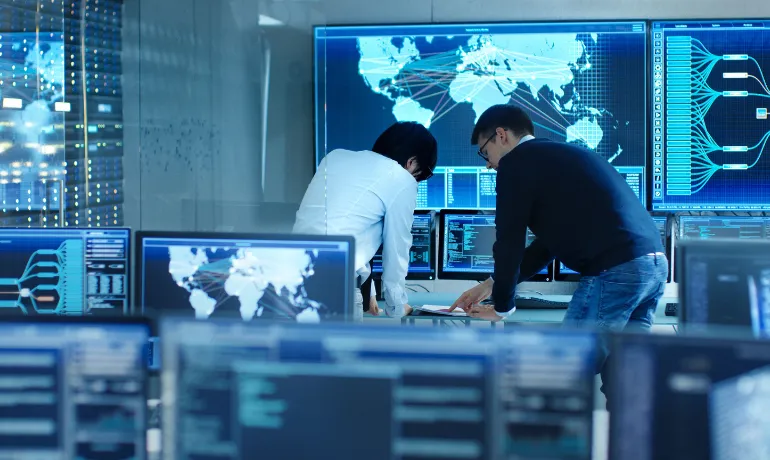In a country as dynamic and diverse as the UAE, the ability to respond swiftly and effectively to emergencies is crucial. Control rooms, particularly emergency operations centers (EOCs), play a pivotal role in coordinating efforts during national emergencies, ranging from natural disasters to public health crises. This blog explores the importance of these control rooms in supporting emergency response teams throughout the UAE.
Understanding Emergency Operations Centers (EOCs)
Emergency operations centers are specialized control rooms designed to facilitate coordinated responses to emergencies. They serve as the nerve center for decision-making, resource allocation, and communication during crises. Key functions of EOCs include:
– Real-Time Monitoring: EOCs continuously monitor situational developments through advanced technology, ensuring that decision-makers have access to up-to-date information.
– Centralized Communication: EOCs serve as the central hub for communication among various emergency response teams, including police, fire services, medical responders, and other relevant agencies.
– Resource Coordination: Effective coordination of resources—such as personnel, equipment, and supplies—is essential for a rapid response, and EOCs facilitate this process.
Coordinating Responses to Natural Disasters
The UAE is susceptible to various natural disasters, including floods, sandstorms, and heatwaves. Control rooms play a crucial role in coordinating responses during such events:
– Emergency Alerts: EOCs disseminate timely alerts and warnings to the public and relevant agencies, ensuring everyone is informed of potential hazards and necessary actions.
– Strategic Planning: During a natural disaster, EOCs develop and implement strategic response plans, assessing the situation and directing resources to the most affected areas.
– Post-Disaster Recovery: Control rooms are instrumental in managing recovery efforts, coordinating aid, and evaluating the effectiveness of the response.
Managing Public Health Crises
The COVID-19 pandemic highlighted the importance of EOCs in managing public health emergencies. Key contributions include:
– Information Dissemination: EOCs facilitate the distribution of critical health information to the public, ensuring that citizens are informed about safety protocols, testing sites, and vaccination campaigns.
– Resource Allocation: During health crises, control rooms help allocate medical resources, including hospital beds, medical supplies, and personnel, to where they are most needed.
– Collaboration with Health Agencies: EOCs coordinate with health authorities and organizations to monitor public health data and develop appropriate response strategies.
Technology Enhancements in Control Rooms
Advancements in technology have significantly improved the capabilities of emergency response control rooms:
– Real-Time Data Analytics: EOCs utilize data analytics tools to assess situations and make informed decisions quickly. This includes analyzing data from social media, emergency calls, and sensors.
– Integrated Communication Systems: Modern control rooms employ sophisticated communication systems that allow seamless interaction among various agencies, ensuring everyone is aligned and informed.
– Simulation and Training: EOCs use simulation software to prepare for potential emergencies, allowing teams to practice responses and improve their readiness.
Challenges Faced by Emergency Operations Centers
While EOCs are essential for effective emergency response, they also face challenges:
– Resource Limitations: Limited resources can hinder response efforts, necessitating efficient planning and coordination to maximize available assets.
– Interagency Coordination: Ensuring effective collaboration among diverse agencies can be challenging, requiring ongoing training and communication efforts.
– Public Communication: Effectively communicating with the public during an emergency is critical. EOCs must ensure that information is accurate, timely, and easily understood.
Conclusion
Emergency operations centers are vital for coordinating responses to national emergencies in the UAE. By providing centralized communication, real-time monitoring, and resource coordination, control rooms enhance the effectiveness of emergency response teams. As technology continues to evolve, the capabilities of EOCs will only improve, ensuring that the UAE is well-prepared to handle any crisis that may arise.

